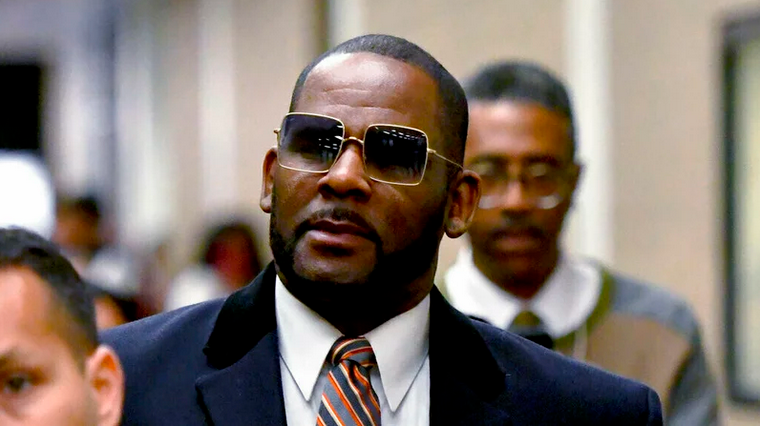US Prosecutor wants more time for R. Kelly


On Thursday, federal prosecutors requested that a judge sentence R. Kelly to an additional 25 years in prison for his convictions on child pornography and enticement charges in Chicago, which would be added to the 30 years he is currently serving for a case in New York.
If the judge agrees to the 25-year sentence and the government’s request that Kelly begins serving his Chicago sentence only after the 30-year New York sentence is fully served, the 56-year-old would not be eligible for release until he is around 100.
Prosecutors described Kelly’s behavior as “sadistic” and labeled him “a serial sexual predator” with no remorse who “poses a serious danger to society”, in their sentencing recommendation filed late Thursday in U.S. District Court in Chicago.
In a 37-page government filing, it was stated that the only way to guarantee that Kelly does not reoffend is to impose a sentence that will keep him incarcerated for the remainder of his life.
Kelly’s sentencing in Chicago is scheduled for Thursday of next week.
In a filing last week, Kelly’s lawyer, Jennifer Bonjean, stated that, given his 30-year New York sentence, “Kelly would have to defy all statistical odds to make it out of prison alive.” She stated that the average life expectancy of inmates is 64, citing data.
Recommending a sentence of 10 years at the lower end of the sentencing guidelines range, she suggested that it could be served concurrently with the New York sentence.
Bonjean argued that Kelly, being Black, had been unfairly punished for an action which white rock stars had been able to get away with for decades.
She wrote that “no one has been prosecuted and no one will die in prison.”
The Chicago case’s prosecutors admitted that a 25-year sentence would be greater than what the sentencing guidelines suggest. They argued, however, that it was appropriate to impose a long sentence and instruct that it be served only after the New York sentence.
The filing argued that a consecutive sentence was eminently reasonable given the egregiousness of Kelly’s conduct. Kelly intentionally and repeatedly engaged in the sexual abuse of minors.
At the trial in Chicago last year, jurors convicted the Grammy Award winning singer on six of 13 counts. But the government lost the marquee count that Kelly and his then-business manager successfully rigged his state child pornography trial in 2008.
All charges against both Kelly’s co-defendants, including his longtime business manager Derrel McDavid, were acquitted.
Kelly, born Robert Sylvester Kelly, rose from poverty in Chicago to superstardom, becoming known for smash hit “I Believe I Can Fly” and sex-infused songs such as “Bump n’ Grind.”
After Lifetime’s 2019 docu-series “Surviving R. Kelly” — featuring testimonials by his accusers — was aired, criminal investigations into the Grammy Award-winner, who went to trial in 2008, were kicked into high-gear, leading to federal and new state charges.
At the recommendation of Cook County State’s Attorney Kim Foxx, an Illinois judge dismissed state sex-abuse charges in January, prior to a trial. Because Kelly would spend decades in prison for his federal convictions, Foxx said she was comfortable dropping the case.
Prosecutors at Kelly’s federal trial in Chicago portrayed him as a master manipulator who used his fame and wealth to reel in star-struck fans to sexually abuse, in some cases to video record them, and then discard them.
After deliberating over two days, jurors convicted Kelly of three counts each of producing child pornography and enticement of minors for sex, while acquitting him of obstruction of justice, one count of production of child porn and three counts of receiving child porn.
After Kelly was sentenced to 30 years in prison for racketeering and sex trafficking by a federal judge in New York, the Chicago verdict came months later. He would not be eligible for release until he is approximately 80 years old, based on that sentence.
The government’s Thursday filing said that, even if Kelly is granted time off for good behavior, he will only be eligible for release in 2066, after he has served 25 years of the New York sentence.
Judge Harry Leinenweber in Chicago will have to decide whether Kelly will serve the sentence imposed by him concurrently, simultaneously, or consecutively with the New York sentence.





